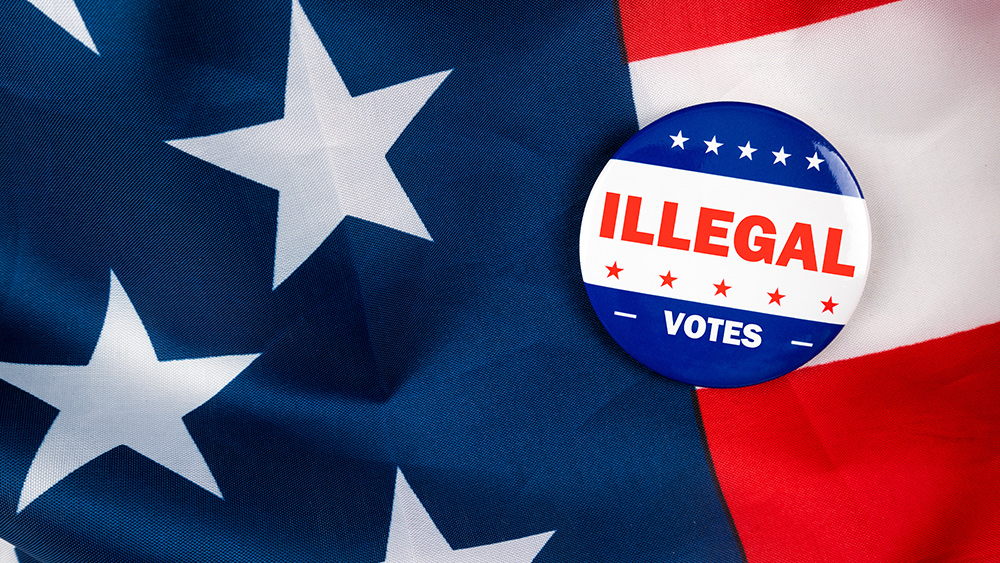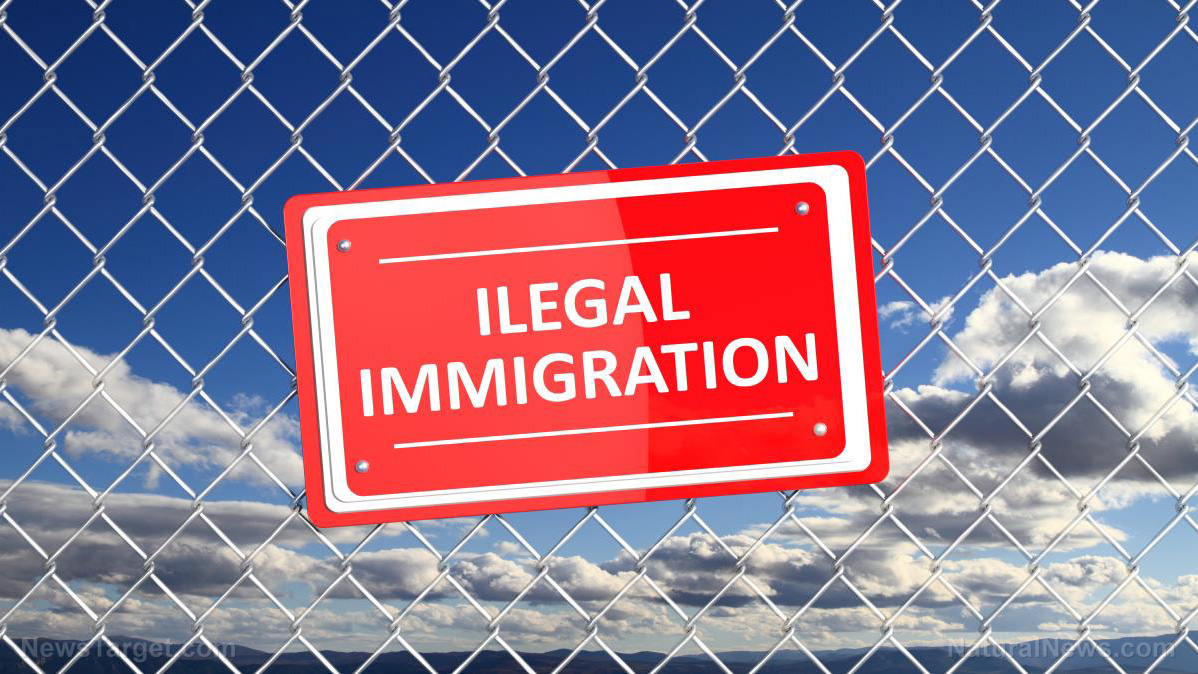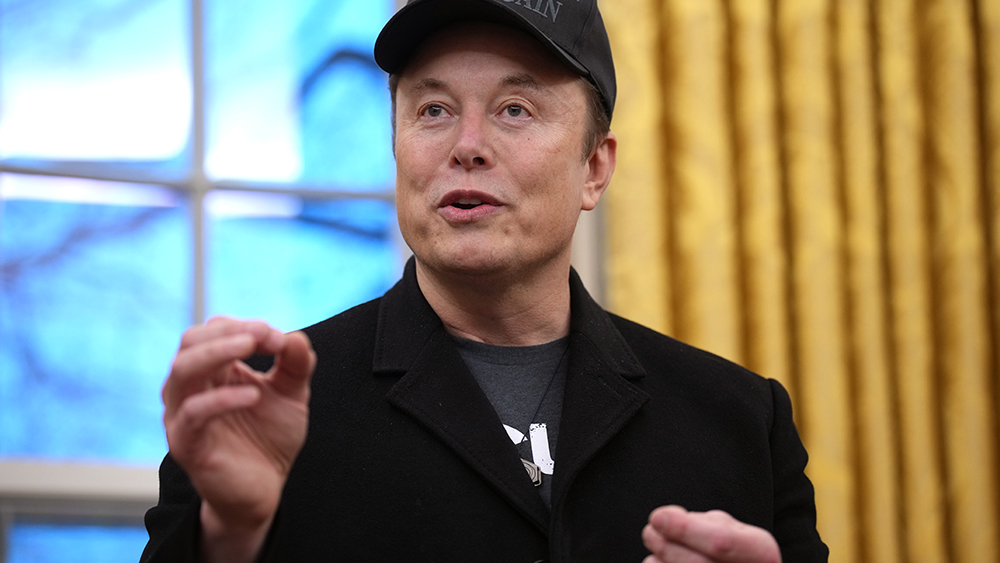 Parler
Parler Gab
Gab
- The House passed the SAVE Act, requiring proof of citizenship for federal voter registration in a 220-208 vote.
- The bill mandates verifying citizenship via documents like passports or birth certificates and allows lawsuits for non-compliance.
- Republicans argue the bill prevents fraud, while Democrats claim it could disenfranchise voters despite 84% public support.
- Four Democrats supported the bill, signaling rare bipartisan agreement on election integrity concerns.
- The Senate faces a tough battle over the bill, with legal challenges likely if it becomes law.
A common-sense safeguard
The SAVE Act amends the National Voter Registration Act, requiring states to verify citizenship through documents such as a U.S. passport, a REAL ID-compliant driver’s license indicating citizenship, or a certified birth certificate. The bill also allows citizens to sue election officials who fail to enforce these requirements—a provision designed to hold states accountable. "I find it both laughable and preposterous that the same people who, for the past four years, forced you to carry a vaccine passport to dine in a restaurant, hold a job, or get on a flight are now opposing common-sense legislation requiring individuals to show proof of American citizenship to vote in elections," said Rep. Paul Gosar (R-AZ), a co-sponsor of the bill. His remarks underscore a central Republican argument: If proof of identification is required for daily activities, why not for voting? Polls support this reasoning. A 2024 Gallup survey found that 84% of Americans favor requiring proof of citizenship for first-time voter registration, showcasing broad bipartisan agreement on the issue. Yet despite overwhelming public support, Democratic leaders have framed the bill as a voter suppression tactic, a claim that Republicans dismiss as hypocritical fearmongering.Democrats resist, despite rare bipartisan support
While the vast majority of House Democrats opposed the bill, four—Reps. Ed Case (HI), Henry Cuellar (TX), Jared Golden (ME), and Marie Gluesenkamp Perez (WA)—joined Republicans in voting yes. Their defections signal that even within the minority party, some recognize the necessity of election safeguards. The opposition argues that non-citizen voting is already illegal under federal law and that documented cases are exceedingly rare. Democrats contend that strict documentation requirements could disenfranchise eligible voters—particularly women, minorities, and low-income individuals—who may struggle to obtain birth certificates or other forms of ID. Republicans counter that the existing attestation system—where voters swear under penalty of perjury that they are citizens—lacks enforcement teeth.Legal hurdles and the path forward
The SAVE Act faces an uphill battle in the Senate, where Democrats still hold enough seats to filibuster. However, Sen. Mike Lee (R-UT) has introduced a companion bill, setting the stage for a high-stakes showdown. Should it become law, the legislation would likely face court challenges, as previous state-level attempts to verify citizenship have been blocked by federal judges. Republicans argue that a national standard is crucial to override inconsistent state policies. For example, 36 states already request or require voter ID, but rules vary widely. Meanwhile, liberal-leaning states like New York and Washington issue REAL ID-compliant driver’s licenses regardless of immigration status, raising concerns that such documents could be misused for voter registration. President Trump has championed the SAVE Act as part of his broader election integrity agenda. "This legislation is a crucial step towards ensuring our elections are fair and honest," Gosar declared, framing the issue as a matter of national sovereignty. The passage of the SAVE Act marks a pivotal moment in America’s ongoing debate over election security. While Democrats warn of disenfranchisement, Republicans insist that verifying citizenship is fundamental to preserving democracy. The Senate’s next move will determine whether this legislation becomes law—or stalls in partisan gridlock. But one thing is clear: In an era of record illegal immigration and fraying public trust, the push for election integrity is only growing stronger. For now, the SAVE Act stands as a testament to the GOP’s commitment to ensuring that only American citizens shape the nation’s future at the ballot box. As Rep. Roy asserted, "This serves as a critical first step to ensure that we maintain election integrity throughout our country." Whether it becomes the law of the land depends on the resolve of those tasked with defending the republic. Sources for this article include: InfoWars.com NYPost.com NBCNews.com FoxNews.comTrump administration proposes $998 daily fines on migrants defying deportation orders
By Laura Harris // Share
Zelensky extends martial law again, delaying elections amid legitimacy concerns
By Cassie B. // Share
COMEX under fire: Is a silver short-squeeze imminent as markets brace for ‘Rule 589’ chaos?
By Finn Heartley // Share
DOGE unveils $400M unemployment fraud scandal: Toddlers, futuristic birthdates fuel outcry
By Willow Tohi // Share
Dane Wigington exposes climate engineering as ‘All-Out Weather and Biological Warfare’
By Finn Heartley // Share
Governments continue to obscure COVID-19 vaccine data amid rising concerns over excess deaths
By patricklewis // Share
Tech giant Microsoft backs EXTINCTION with its support of carbon capture programs
By ramontomeydw // Share
Germany to resume arms exports to Israel despite repeated ceasefire violations
By isabelle // Share










